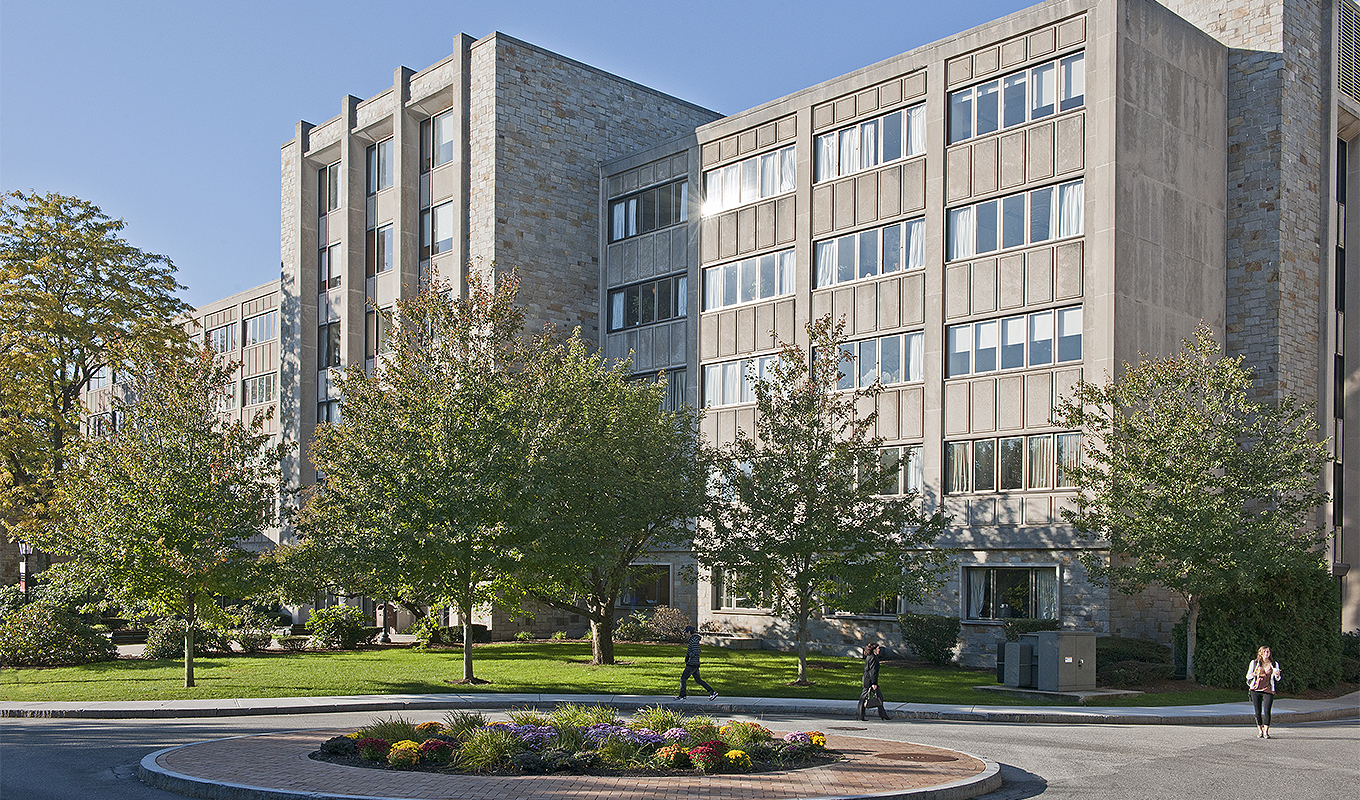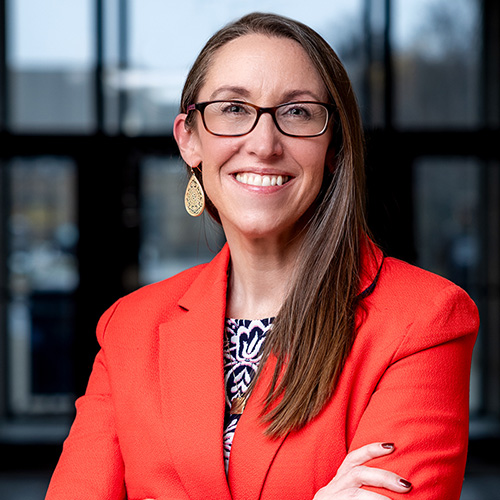
Eldercare benefit shows promise
flexible leave program yields positive results
An eldercare employee benefit that is the subject of a Boston College School of Social Work case study holds promise for the millions of working Americans who face the challenge of caring for aging family members and loved ones, according to the BCSSW researchers.
Supported by a grant from AARP, Associate Professor Christina Matz—director of the Center on Aging & Work at BCSSW—and doctoral student Chin-Yi Su have authored an innovative-practice case study of the Concentric Caregiving Program, which provides flexible paid leave each year to employees at global digital agency Critical Mass, an employer partner in AARP’s Living, Learning & Earning Longer Collaborative.
Through Concentric, Critical Mass employees receive up to 40 hours—the equivalent of five standard workdays—annually for eldercare responsibilities, which can be used in full days or smaller increments. Employees submit a request through an online form, with minimal explanation required, and Concentric hours are recorded in the company’s time-tracking software, enabling Critical Mass to monitor usage patterns and better understand caregiving needs. Concentric—developed by David Greene, a user-experience director and caregiving advocate at Critical Mass—also includes educational seminars on caregiving-related topics.

BCSSW Associate Professor Christina Matz (Caitlin Cunningham)
According to Matz and Su’s case study, approximately 10 percent of Critical Mass’s nearly 1,900 employees opted into the program when Concentric was introduced in 2023 (an update on current numbers has not yet been completed). In addition to flexibility and the ease of tracking it provides, Concentric has been praised for fostering greater employee loyalty and emotional connection to the company, as well as promoting mutual employee-management trust.
“Caregiving isn’t a niche issue—it’s a workforce reality,” said Matz. “Our Concentric case study shows that a simple, flexible five days/40 hours of paid eldercare leave can provide real relief for employees and measurable gains in retention and engagement. We’re eager to share how Critical Mass made it work so other employers can adapt, scale, and support a truly multigenerational workforce.”
The program’s name is meant to convey the philosophy behind the caregiving it supports, she said: a series of concentric circles with the employee at the center. Where a parental leave program represents the first circle of care, a concentric circle is the next, extending outward to address the next stage of life: eldercare.

BCSSW doctoral student Chin-Yi Su is co-author of the case study.
Among the more significant findings from the case study, according to Matz and Su, was that employees tend to use Concentric time in smaller increments rather than full days: One employee might need two hours to take a parent to a doctor’s appointment, for example, or an afternoon to help their grandparents reorganize their house. But the five days proved useful for one employee who journeyed to Jamaica to care for her grandmother, they noted, and another who traveled to Korea to support her grandfather.
Another employee moved back to his hometown and into his mother’s house while she was in hospice care. He worked remotely for six hours each day, then spent the last two hours of his day having dinner and playing cards with her, until the day she died.
“This shows how eldercare is a diverse, multifaceted issue that necessitates a great deal of flexibility on the part of the employee and employer,” said Matz. “What stands out about Concentric is that it enabled people in very different situations to be where they needed to be, which is so important to the physical and mental health of the caregiver. It’s vital to understand how and why people use the program, so that the organization can better serve its community.”
Employees also appreciated both the application and request process, Matz and Su noted.
“It’s not always easy to ask for time off to take care of aging parents or grandparents,” explained Matz. “People often feel discomfort in sharing details about what kind of care they need to provide, when, and for how long. But that didn’t happen with Concentric.”
In fact, she added, Concentric became a “brand name” that employees could use.
“They now call it ‘Concentric time.’ Or, as a manager noted, instead of saying ‘I need time off to take Mom to her doctor,’ people might say, ‘I’m taking Concentric on Thursday.’”
Last year, Matz and Su published a larger-scale analysis of caregiving, “The Many Faces of Care”—also published through AARP—which lent context to their Concentric case study. As they noted, by 2030, nearly 20 percent of the population will be aged 65 or older, a shift mirrored in the labor force where older workers, aged 50 and above, represent a rapidly growing segment. Alongside this aging workforce, they said, “the caregiving crisis is intensifying, with over 53 million Americans providing unpaid care to loved ones.”
Using data from a longitudinal survey taken every two years of more than 20,000 Americans over 50, “The Many Faces of Care," called attention to the experiences of older working caregivers, identifying six distinct caregiving typologies in this group. These included individuals without caregiving responsibilities as well as those engaged in caregiving or financial support for spouses, parents, children, or grandchildren. Each typology highlighted unique sociodemographic characteristics, health outcomes, and well-being profiles.
Discussions are underway about expanding Concentric within Critical Mass. Meanwhile, Matz and Greene have submitted a proposal to showcase their work at the South by Southwest (SXSW) conference next March, which would give Concentric more visibility.
“One of our goals is to develop a toolkit for other employers to use in implementing their own eldercare benefit,” said Matz. “Of course, each organization has its unique structure, methodology, and outlook, but we feel Critical Mass’s experience with Concentric is very instructive in addressing the concerns about eldercare.”
